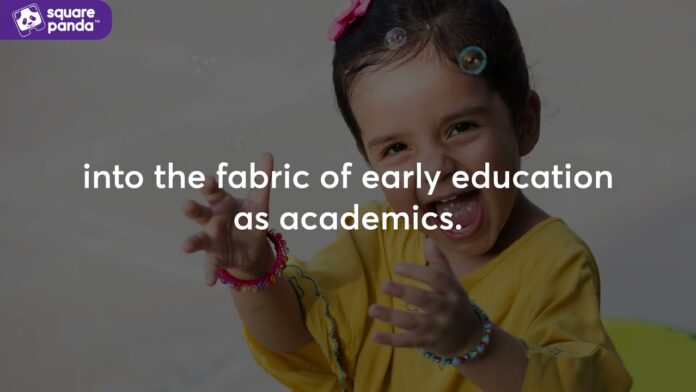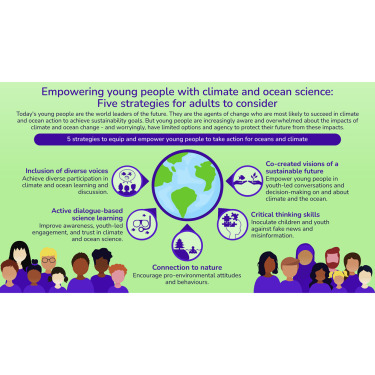Music is a universal language that has the power to connect people, evoke emotions, and inspire creativity. It has been an integral part of human culture since ancient times and its benefits go far beyond just entertainment. Music education, in particular, has been proven to have numerous positive effects on individuals, especially when it comes to cognitive development. In this blog post, we will dive into the importance of music education and explore its various benefits.
Importance of Music Education
Music education refers to the teaching and learning of music, either as a subject in schools or through private lessons. Many parents are often faced with the question of whether or not to enroll their children in music classes. However, research has shown that music education can have a significant impact on a child’s overall development. Here are some reasons why music education should be considered an essential aspect of a child’s education.
Promotes Brain Development
One of the most significant benefits of music education is its impact on brain development. Studies have shown that children who receive music education have better-developed brains compared to those who do not. This is because learning music involves using both sides of the brain – the analytical left side and the creative right side. As a result, children who are exposed to music education develop enhanced cognitive abilities, including better memory, problem-solving skills, and spatial reasoning.
Moreover, playing an instrument requires a lot of hand-eye coordination, which helps in strengthening the connections between the motor and sensory areas of the brain. This ultimately leads to improved motor skills and dexterity.
Fosters Discipline and Perseverance
Learning music takes time, patience, and dedication. Unlike other subjects, progress in music is not immediate and requires consistent practice. Therefore, students who receive music education learn the value of discipline and perseverance. They understand that mastery of any skill takes time and effort, and this mindset can transfer to other areas of their lives, such as academics and extracurricular activities.
Encourages Cultural Awareness
Music is a reflection of culture and heritage, and learning about different types of music can promote cultural awareness and understanding. Music education exposes students to various genres, styles, and techniques from different parts of the world. This helps them appreciate diversity and develop a global perspective.
Cognitive Benefits

Music education has been linked to numerous cognitive benefits that can positively impact a child’s overall development. Here are some of the key cognitive benefits of music education.
Improves Memory
Learning to read and play music requires students to memorize notes, rhythms, and patterns. This constant exercise of memory can significantly improve a child’s ability to remember information in other areas of their academic studies.
Moreover, playing an instrument also involves coordinating multiple actions simultaneously, which is known as multi-tasking. This not only improves overall coordination but also enhances memory capabilities.
Enhances Problem-Solving Skills
Music is a complex language that involves interpreting symbols, patterns, and sounds. Learning to decode and interpret these elements requires problem-solving skills. As students learn music theory and practice playing an instrument, they are constantly solving problems, such as figuring out how to play a challenging piece or improvising when a mistake is made. These problem-solving skills can transfer to other areas of life, such as critical thinking and decision-making.
Boosts Spatial-Temporal Skills
Spatial-temporal skills refer to the ability to visualize spatial patterns and mentally manipulate them over time. Learning music involves reading notes on a sheet and translating them into physical movements on an instrument. This process requires strong spatial-temporal skills, which can also be applied to subjects like math and science.
Improves Attention and Focus
Playing an instrument or singing in a choir requires a high level of concentration and focus. Students must pay attention to their own notes as well as those of other musicians to create a harmonious sound. This constant exercise of attention and focus can improve a child’s ability to concentrate and filter out distractions in other areas of their lives.
Emotional Benefits

Music has the power to evoke emotions, and learning music can help students connect with their emotions and express them in a healthy way. Here are some of the emotional benefits of music education.
Relieves Stress and Anxiety
Listening to music has been shown to have a calming effect on the mind and body. Similarly, playing an instrument or singing can also have stress-reducing effects. The act of creating music allows students to release tension and channel their emotions into something positive. This can be especially beneficial for children who may struggle with anxiety or other emotional challenges.
Boosts Self-Esteem and Confidence
Learning to play an instrument or sing can be a significant achievement for a child. As they improve their skills, their self-esteem and confidence grow, giving them a sense of accomplishment and pride. Moreover, performing in front of others, whether through recitals, concerts, or competitions, can boost a child’s self-confidence and teach them how to handle nerves and perform under pressure.
Promotes Emotional Intelligence
Emotional intelligence refers to the ability to understand and manage one’s own emotions as well as those of others. Music is a powerful tool for developing emotional intelligence as it requires students to interpret and convey emotions through music. This can help children become more empathetic and understanding towards others.
Social Benefits
Music is often seen as a solitary activity, but music education can also have a significant impact on a child’s social development. Here are some of the social benefits of music education.
Encourages Collaboration and Teamwork
Playing an instrument or singing in a choir requires students to work together towards a common goal – creating beautiful music. This promotes collaboration and teamwork, teaching children the importance of working together and respecting each other’s contributions.
Builds Friendships
Music education can also bring children together who share a common interest in music. As they learn and practice together, students can form friendships that can last a lifetime. Moreover, performing in musical groups allows students to bond over their shared love for music and create lasting memories.
Teaches Communication Skills
Music is a form of communication, and learning to play an instrument or sing can also improve a child’s verbal and nonverbal communication skills. As students collaborate and perform with others, they learn how to express themselves effectively and listen to others’ ideas and perspectives.
Academic Benefits
Aside from the direct cognitive, emotional, and social benefits, music education has also been linked to improved academic performance. Here are some of the academic benefits of music education.
Boosts Literacy Skills
Learning to read and play music requires students to interpret symbols and associate them with sounds. This process is similar to learning how to read words and sentences. As a result, students who receive music education often have better literacy skills, including reading comprehension and vocabulary.
Improves Math Skills
Music is highly mathematical, as it involves counting rhythms, understanding patterns, and dividing beats into fractions. These concepts are essential in playing an instrument, and learning music can help students understand math concepts better. Studies have shown that students who receive music education score higher on math tests compared to those who do not.
Develops Language Skills
Learning to read and play music also involves understanding and interpreting different languages, such as Italian (commonly used in music notation) and Latin (often found in classical music). This exposure to different languages can improve a child’s language skills, including expanding their vocabulary and improving pronunciation.
Developing Creativity
Music is one of the most creative forms of expression, and music education plays a crucial role in developing and nurturing creativity. Here are some ways in which music education promotes creativity.
Encourages Improvisation
Improvisation is an essential aspect of music, and it requires thinking on your feet and coming up with unique ideas in the moment. Learning to improvise can help students think outside the box and foster their creativity.
Promotes Self-Expression
Music is a form of self-expression, and learning to play an instrument or sing can provide students with a healthy outlet for expressing their emotions. This can be especially beneficial for children who may struggle to communicate their feelings.
Combines Art and Science
Music is both an art and a science as it involves creativity and technical skills. Learning music allows students to combine these two elements and express themselves artistically while also understanding the technical aspects of music theory.
Conclusion
In conclusion, music education offers numerous benefits that can positively impact a child’s overall development. From enhancing cognitive abilities and fostering emotional growth to promoting social skills and improving academic performance, music education should be considered an integral part of a child’s education. By providing children with the opportunity to learn music, we are not only nurturing their musical talents but also equipping them with valuable skills that can benefit them throughout their lives.









